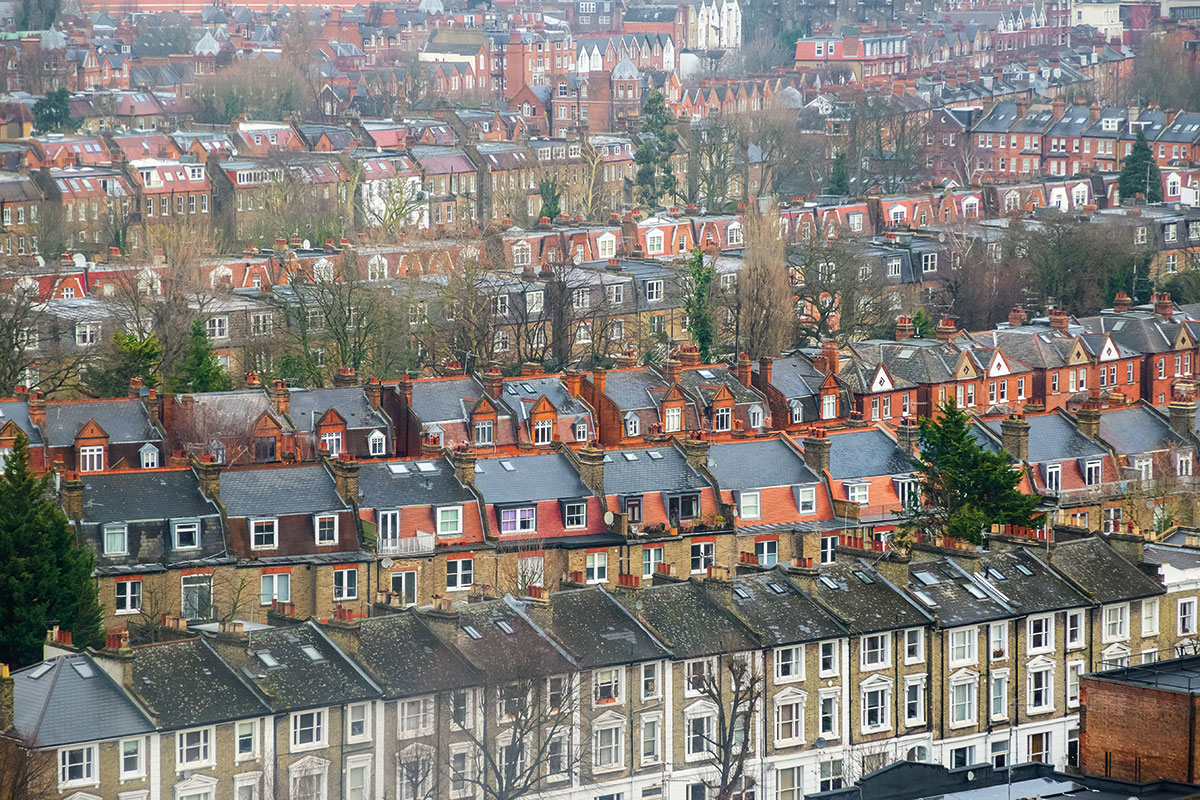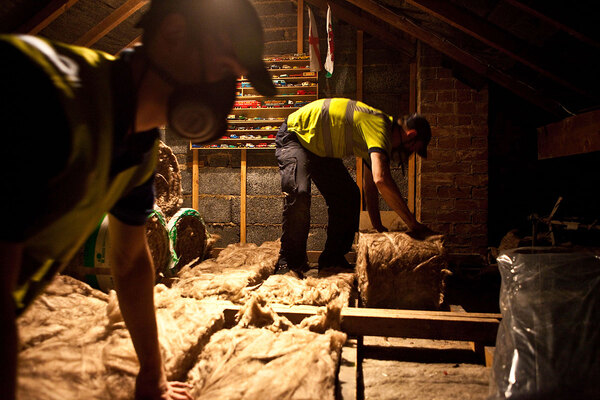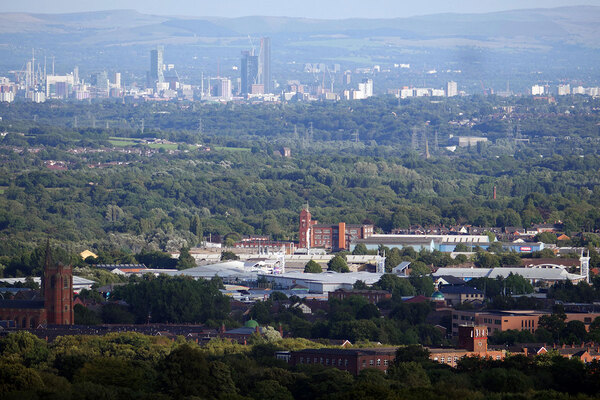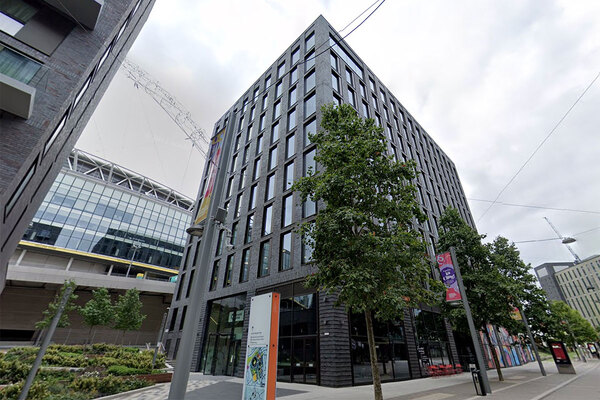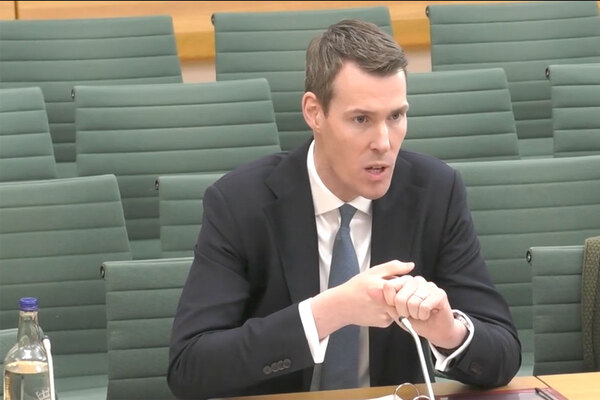The story explained: what is exempt accommodation?
The prevalence of exempt accommodation has ballooned in recent years as people are increasingly referred to this type of housing. But with more questions rising about its quality, Jack Simpson explains what it is and why it has become so controversial

What is exempt accommodation?
Exempt accommodation is shared housing that is not funded or commissioned by local authority or social care funding. It is often used as accommodation for people with very few other housing options, such as prison leavers, rough sleepers, refugees and migrants, and those experiencing substance abuse issues.
There is also a small element of care, support and supervision provided to claimants, which means it is exempt from Local Housing Allowance (LHA) caps, hence the use of the term ‘exempt’.
These exemptions enable organisations providing this type of housing to charge staggeringly high rates, when compared with general LHA rates, to claimants living in their properties.
For example, a study by Spring Housing Association and charity Commonweal Housing in 2019 found that some providers were charging as much as £200 per week in Birmingham, despite the LHA cap for shared accommodation being just £57.
However, case law states that there only needs to be a “more than minimal” level of care and support to qualify as ‘exempt’, meaning some providers can reap huge rental yields while providing a small amount of support.
Exempt accommodation claimants are usually housed in houses in multiple occupation (HMOs), which are often large properties that have been converted. For example, one property could have six different rooms, housing six different people who are all able to claim £200 per week.
The money, in most cases, comes from the Department for Work and Pensions (DWP).
While there are many good examples of exempt accommodation providers, there have been instances where the quality of accommodation has not been up to standard and the support being provided has been found to be inadequate.
Specialised supported housing (SSH), the type of housing that has become popular with lease-based providers, is a type of exempt accommodation. However, SSH provides housing for vulnerable people with significant care needs, which means the bar for care and support provided is a lot higher than in non-commissioned exempt accommodation.
In the case of this article, we will be talking exclusively about non-commissioned exempt accommodation.
How does it work?
There are a couple of different ways that exempt accommodation works. In the minority of cases, providers supply the homes they own and use them for exempt housing. In other instances they also provide the management and support.
However, the more common model for exempt accommodation sees housing associations, charities, or community interest companies (CICs) effectively rent homes from managing agents for a fee. The managing agent then provides the home and services, and the housing association keeps some of that money.
A recent court case between Midland Living and Prospect Housing shows an example how it works.
Prospect rented rooms from Midland Living at a rate of £189 per week for rent and service charges. Those rooms were then rented out by Prospect to individuals under a licence agreement for £237, with Birmingham Council paying £217 of the bill through housing benefit and tenants paying £20 through the service charge.
In some cases, the managing agents lease properties from either professional landlords or just individuals who are keen to rent out properties for solid rent returns.
There are slightly different rules on where the money comes from depending on what type of provider an organisation is. A registered provider is able to claim 100% of housing benefit from the DWP. Organisations can also provide this type of housing if they are a CIC or charity.
In the case mentioned, the local authority will have to pay between 40% to 60% of the rental costs through its own housing benefit fund.
How prevalent is exempt accommodation?
Despite the regulations that allow exempt accommodation to happen being in place since 1996, the number of exempt accommodation properties and claimants has ballooned in recent years.
In October, research by charity Crisis estimated that there could be more than 150,000 households living in this type of housing. Staggeringly, this had grown by 58% from the 95,149 people living in exempt accommodation in 2016.
Research carried out by Prospect, a provider now exiting the sector, estimated that more than £800m may have been spent on exempt accommodation in the past financial year alone.
Birmingham is the capital of exempt accommodation, right?
Yes, Birmingham has become the epicentre for exempt accommodation in recent years. This was outlined by Inside Housing in June when we revealed that the number of exempt accommodation claimants in the city had grown from 3,679 in 2014 to more than 22,000 in 2021.
There are a number of reasons why Birmingham has become such a hotbed for this type of accommodation.
First, there is an acute shortage of social housing in Birmingham. This was illustrated in a story Inside Housing published in October, which revealed that Birmingham Council had 500 applications for its housing waiting list every week, with 225 then joining the list every week.
As a result of this, people who are seen as hard to house, for example prison leavers and refugees, are being referred to other types of housing – and exempt accommodation often fills that gap.
However, there have also been a number of reports that people at risk of homelessness, or those who are hard to house, have been sent to Birmingham because of the prevalence of exempt accommodation.
This is because Birmingham is an attractive place for exempt accommodation for other reasons, too. As a by-product of its old industrial legacy, the city is full of large Victorian homes that can easily be converted into HMOs – meaning more claimants for each property.
Figures within the sector have also told Inside Housing that another reason for the particular spike in Birmingham was because the council’s housing benefit team took a less stringent approach to claims, as well as the level of support being provided, in recent years, which has made it easier for new players to enter the market.
Who are the big exempt players in Birmingham?
As of February, 73% of all exempt accommodation claimants (16,267) lived in homes managed or leased by seven housing associations.
The biggest is Reliance Social Housing, which as of March owned 1,591 properties, housing 5,642 claimants. The second biggest is Concept Housing Association, which houses 3,773 claimants in its 1,200 properties. The third biggest is Ash-Shahada Housing Association (ASHA), which owns 642 properties with 2,539 exempt accommodation units.
ASHA, alongside 3CHA and Green Park (now de-registered), is one of a handful of the Birmingham associations that expanded into providing housing in the city from other areas of England.
All seven of the biggest providers have now been deemed non-compliant by the Regulator of Social Housing. Two of those listed have now decided to stop providing exempt accommodation.
Prospect stated in January that it would be closing down because it would be “unable to provide the standard of accommodation and support we and the regulator expect, while being financially viable and compliant in the long term”.
New Roots said in June that it would stop providing this type of accommodation in the future, stating that the lease-based model was “intrinsically unsafe”.
In some cases, the displaced residents from Prospect and New Roots have been moved on to be housed by other exempt providers.
Green Park, which housed 897 claimants, was stripped of its exempt accommodation status by Birmingham Council last year after it was deemed to be operating as a ‘for-profit’ provider. Housing benefit rules deem that registered providers offering exempt accommodation cannot be ‘for-profit’ organisations. Green Park subsequently lost its registered provider status after it was found not be owning or managing any social housing.
It is not just Birmingham though, is it?
Birmingham is by far the area where exempt accommodation is most prevalent, but it is definitely a nationwide issue, as the Crisis report shows.
The last meaningful research into nationwide figures was referenced in Birmingham Council’s scrutiny comittee report into exempt accommodation in the city.
In the report, a Freedom of Information request revealed there had been an increase in most major cities between 2015 and 2018. Liverpool saw a 42% (3,250 to 4,640) increase, Leeds an 18% (1,990 to 2,350) increase, and Sheffield’s numbers rose by 146% (630 to 1,550).
But it is understood that the numbers have grown significantly since then. The North West of England is seen as a place of rapid growth in recent times, with areas such as Blackburn, Blackpool and other Lancashire towns being hotspots. In most of these cities, the type of providers are largely CICs and charities. However, anecdotally, Inside Housing understands that some registered providers are looking to move into these areas.
Is anything being done to improve exempt accommodation?
One of the biggest criticisms around exempt accommodation is the lack of regulation on the properties being used and the landlords that provide the homes.
Last month Crisis called the sector “dangerously under regulated” and said some providers “were abusing the system for financial gain”.
Many have called on the government to try and bring in additional oversight of the sector.
In an All-Parliamentary Group Session for Ending Homelessness meeting, Cathy Page from the Department for Levelling Up, Housing and Communities (DLUHC) said the government recognised the problems with the sector and is currently working to find “appropriate” and “proportionate” solutions to fix it.
DLUHC’s main intervention so far has been to fund pilot schemes in five local authorities (Birmingham, Blackburn, Blackpool, Bristol and Hull), with the programmes aimed at improving standards in the exempt accommodation sector. Many of the pilots have seen councils bolster their housing inspection teams and better monitor whether housing is adequate and that the right level of care is being provided.
In Birmingham, there has also been a drive to recoup housing benefit payments from providers, with the council so far retrieving £3.6m.
The Social Housing White Paper also promised to give the Regulator of Social Housing powers to take action over consumer standards, meaning those that fail to provide good-quality accommodation will be censured by the regulator.
Sign up for our tenancy management newsletter
Already have an account? Click here to manage your newsletters

